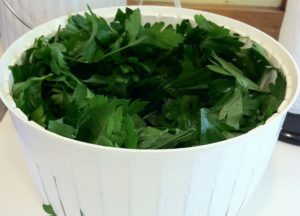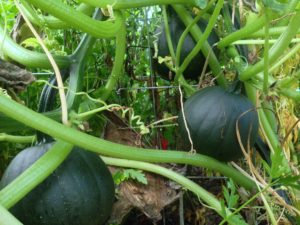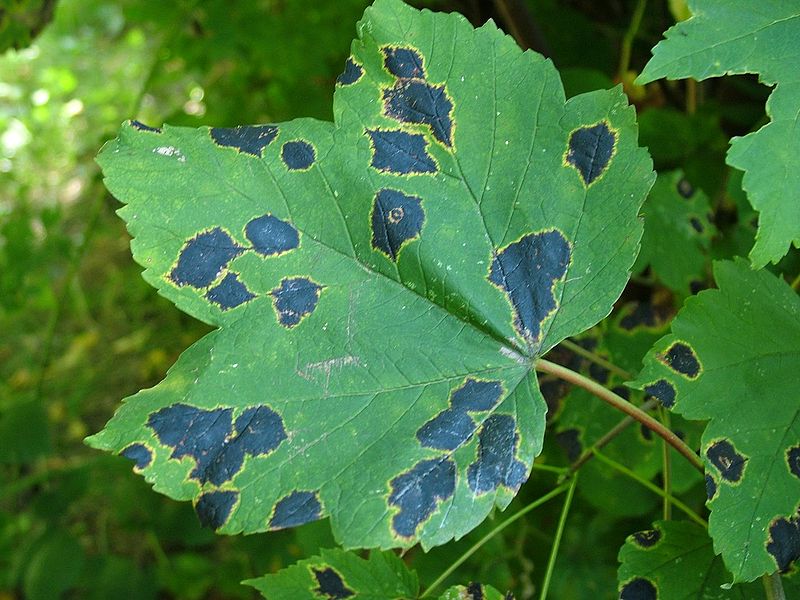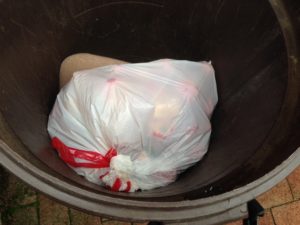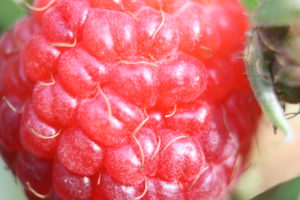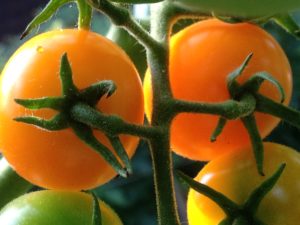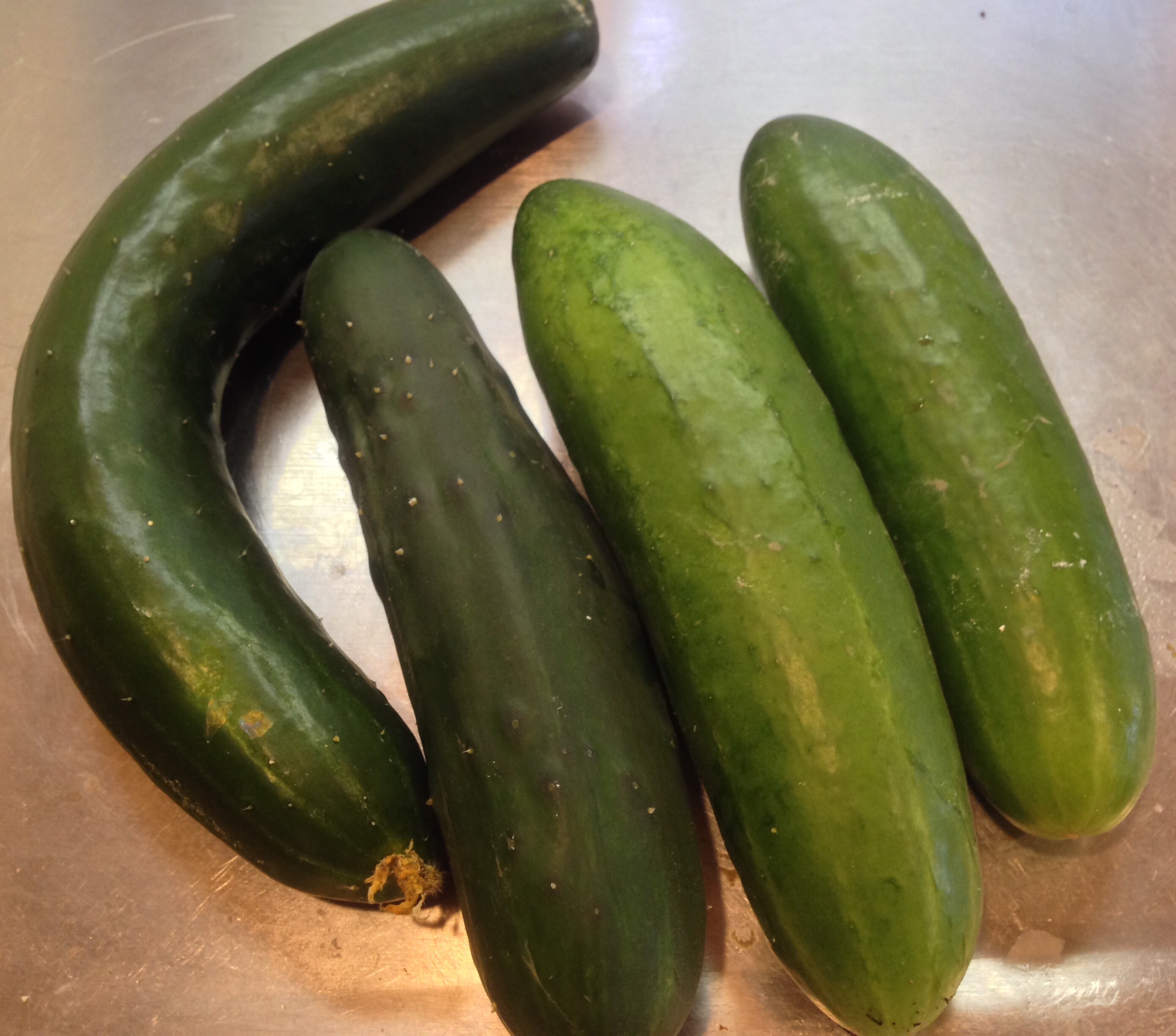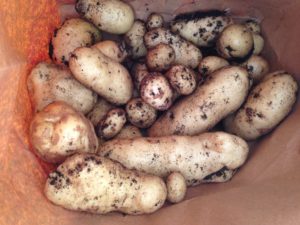
We grow potatoes more for the fun than the quantity, since I’m the only one that eats them. This is half of this year’s crop.
This is half of our potato crop. At home we grow them in potato “bags” made of polypropylene. At schools and other places we grow them in storage containers with holes drilled in them.
One great thing about this method is that once you run out of space in the garden you can just plunk a tub anywhere, regardless of soil quality (or any soil at all) and grow potatoes. Continue reading

